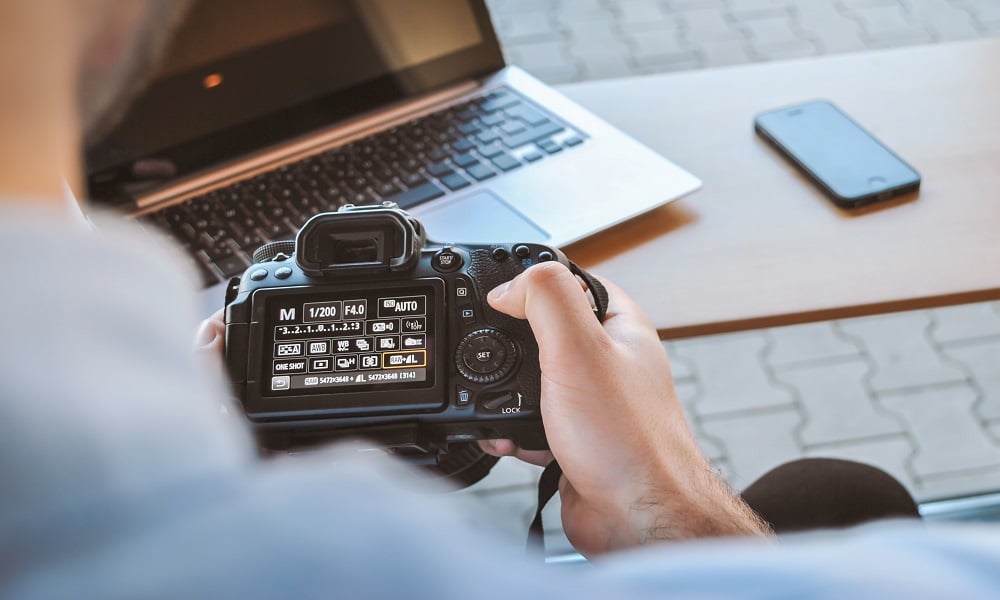Product photography aims to capture an object’s soul rather than merely taking a picture of it. The importance of high-quality product photographs cannot be overstated in the current digital era when e-commerce and online purchasing are king. In the world of online buying, a picture may be worth a thousand words and even make or break a deal.
What Makes Product Photography Important?
Ever wonder why some items merely catch your eye when you purchase online? What about the brand? Is it the cost? Frequently, it’s the product pictures. Your online sales might succeed or fail based on how captivating your product picture is. In the realm of online purchasing, it resembles a handshake. Do you recall the last time you bought anything from a real store? Well, a picture does that on the internet. How can you make sure the handshake makes an impact, then?
What You Need to Know to Take the Perfect Photo?
Imagine attempting to seduce someone using just your words and no charm. Yes, it is difficult. The same holds for goods without quality images.
The Best Equipment to Use
While it may be tempting to just pull out your smartphone and start shooting, making the investment in a good DSLR or mirrorless camera may pay off handsomely. But keep in mind that other factors also matter. The use of lenses, tripods, and other equipment is also important. Consider it like assembling a toolset. A hammer wouldn’t be used for every job, would it?
Background and Environment
Often, keeping things straightforward is important. Your goods may stand out against a simple, inconspicuous backdrop. However, on occasion, a textured or themed backdrop might give context. Comparable to dressing appropriately for the situation. You can remove background product photography with ease with the help of Orbitvu which is probably the best software for background removal.
Modern Editing Software
Advanced editing may make your items stand out and sparkle, from erasing imperfections to generating composite photographs. It’s similar to putting the cherry on top.
Tips for Ensuring Successful eCommerce Using Photos
Your sales might soar with the help of clear product descriptions, customer testimonials, and high-quality images. It’s comparable to matching a fine wine with a flavorful cheese.
Common Errors to Prevent
Customer misinformation from excessive editing, unreliable camera angles, or poor lighting might result in refunds and negative reviews. The wisest course of action is always to be honest.
Virtual try-ons, augmented reality, and 360-degree views are just a few of the innovations that are on the horizon. Are you ready to take the next step?
Product Photography: Making a Good First Impression
A prospective customer’s buying decision may be made or lost based on the first picture they see of your goods. It’s the initial impression of the digital era. Together, the presentation, lighting, and angles express the product’s worth and quality as well as its basic characteristics.
Lighting in Product Photography: Its Importance
Natural vs. artificial lighting: While artificial lighting offers stability and control, natural lighting offers a softer, more organic feel. For best outcomes, know when to utilize each and how to do so.
Shadow manipulation: Shadows may enhance a product’s depth, but they can also cause problems. Discover how to control shadows to get your desired effect.
Angles & Perspectives: Beyond What Is Visible
The viewpoint from which you photograph a thing may completely alter how it is perceived. In product photography, perspective has a huge impact on anything from accentuating certain features to demonstrating size.
Selecting the Proper Background
Backgrounds with a simple design: Sometimes, less is more. Your product may stand out against a plain backdrop, keeping the spotlight where it belongs.
Backgrounds with themes: For certain items, a backdrop with a theme or context may tell a more interesting tale.
What Post-Production Does?
Even the greatest images may need some tweaking. Post-production is essential for improving your product photographs, from color correction to adding details.
Essential Equipment for Product Photography
- DSLR vs. Mirrorless cameras.
- Lenses: normal, macro, or wide-angle The correct lens may make all the difference.
- Tripods: Stability is essential, particularly for photos with fine details.
- Lightboxes: For faultless photographs, lightboxes may provide a uniformly lighted setting for little goods.
- Exploring niches in product photography
- Food photography: capturing the savory flavor of meals.
- Fashion photography: It’s not only about the clothing; it’s also about the emotions they evoke.
- Jewelry photography captures the fine details, gleam, and charm of priceless diamonds.
Scene-setting using Props and Staging
Props may add to the attraction of a product and provide context. Recognize how to use props effectively without drawing attention away from the core offering.
DIY Product Photography: Startup Advice
Budgetary restrictions? Not to worry. On a tight budget, you may produce professional-looking pictures by using some imagination and simple tools.
Conclusion
The art and science of product photography are essential in the age of Internet commerce. Understanding its subtleties may be the difference between taking photos that are interesting and memorable, whether you’re a seasoned pro or a beginning photographer.
In addition to showing a product, product photography also aims to convey the product’s narrative. Making the correct first impression is crucial, much like wearing a well-fitting suit or the ideal little black dress. Are you prepared to learn the art now?
FAQs
Can I take product photos using my smartphone?
Modern smartphones do have sophisticated cameras, but professional-quality images need specialized tools and devices.
How significant is the backdrop in product images?
Extremely! A well-designed backdrop may draw attention to the goods and eliminate diversion.
What kind of illumination works best for product photos?
The goods and atmosphere both have a role. While artificial lighting is used for uniformity and control, natural lighting is flexible.
How much editing is necessary?
Plenty to enrich without deceiving. Make sure the product’s genuine nature is always conveyed.
Do 360-degree product views merit the expense?
Absolutely! They provide a complete picture, increasing user trust and involvement.


